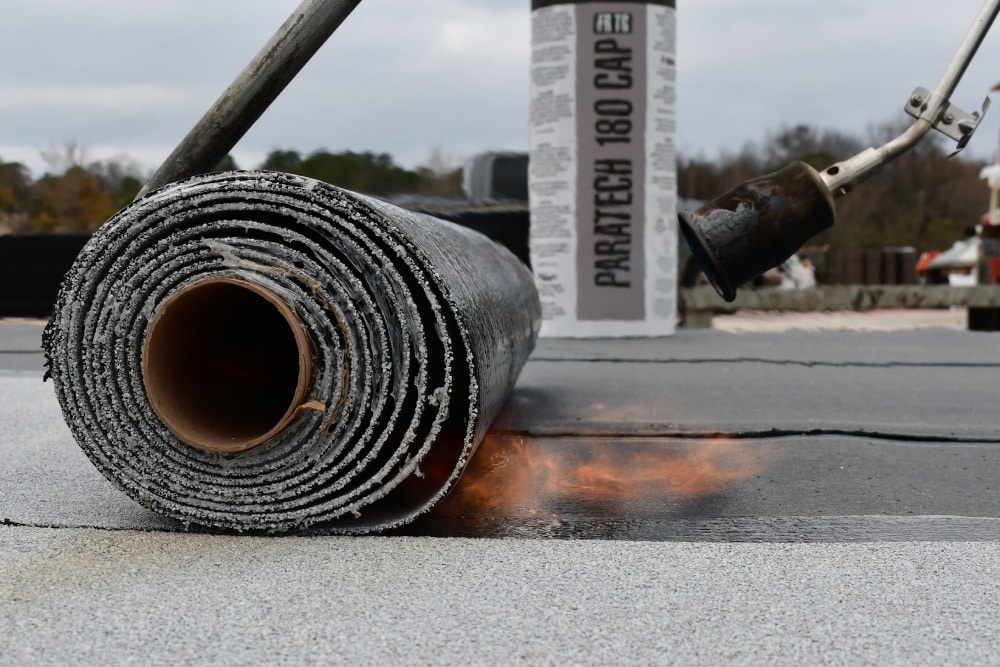

What is SBS-Modified Bitumen?
Introduction to SBS Roofing
What is SBS roofing?
In the 1960s, working in conjunction with Shell Chemical of Europe, Siplast found that by properly modifying asphalt with SBS (styrene butadiene styrene), a synthetic rubber polymer, we could produce an extremely durable elastomeric blend with exceptional elongation and recovery properties across a wide range of temperatures. These modified bitumen (asphalt) sheets achieved greater elongation ratings than other asphaltic systems in existence at that time. Since then, SBS roofing has become a widely-used multi-layer roofing system used on flat or low-sloped asphalt-based roofs on commercial or industrial buildings around the world.

Advantages of Siplast SBS roofing systems
Siplast SBS-modified membranes meet several performance specifications, making this technology an ideal solution for asphaltic roofing systems. These benefits include:
- Longevity of a multi-ply system
- Utmost flexibility
- Unsurpassed durability
- Extreme weather resistance
- Variety of application methods
- Easy installation and maintenance
Applications of SBS roofing

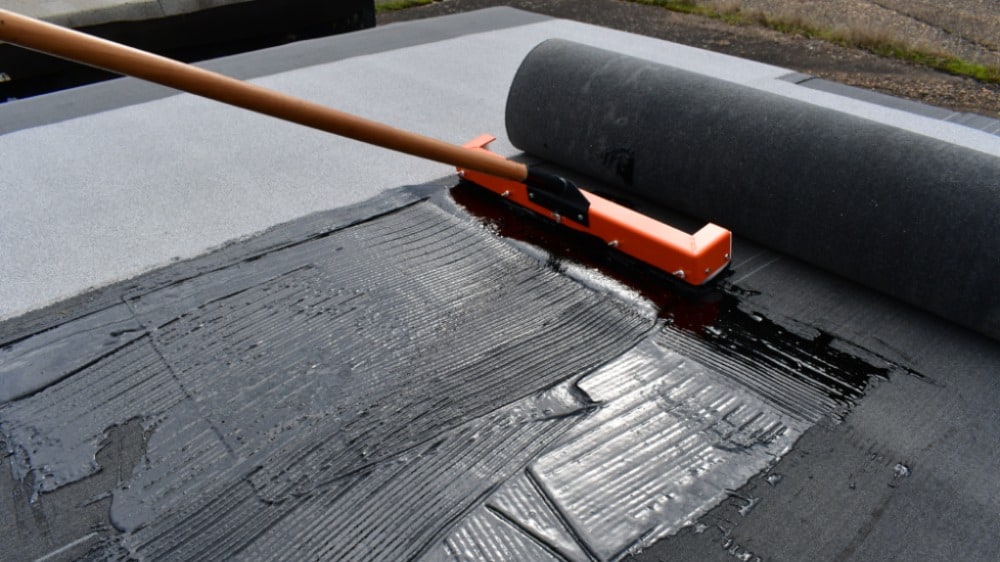
Cold adhesive
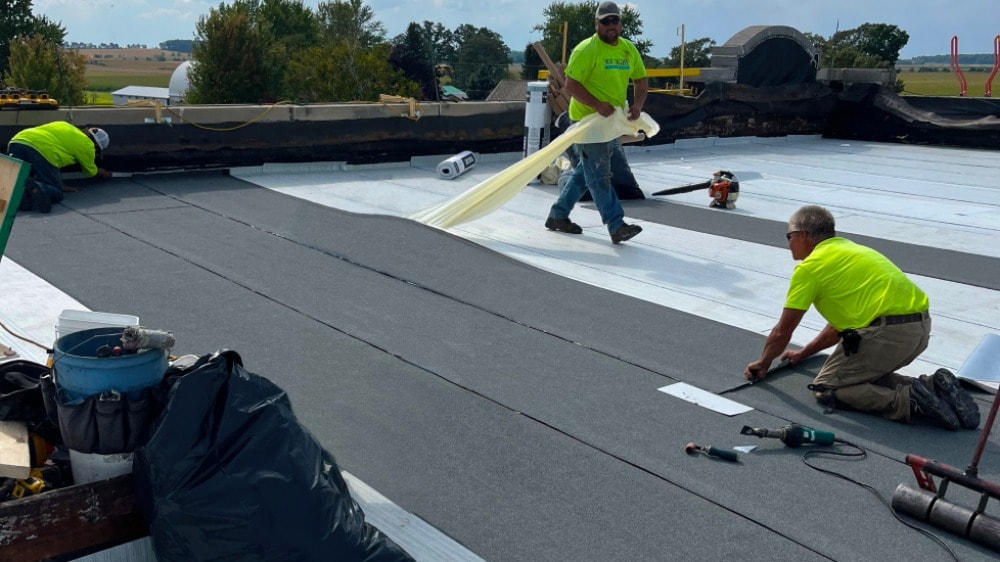
Self adhesive
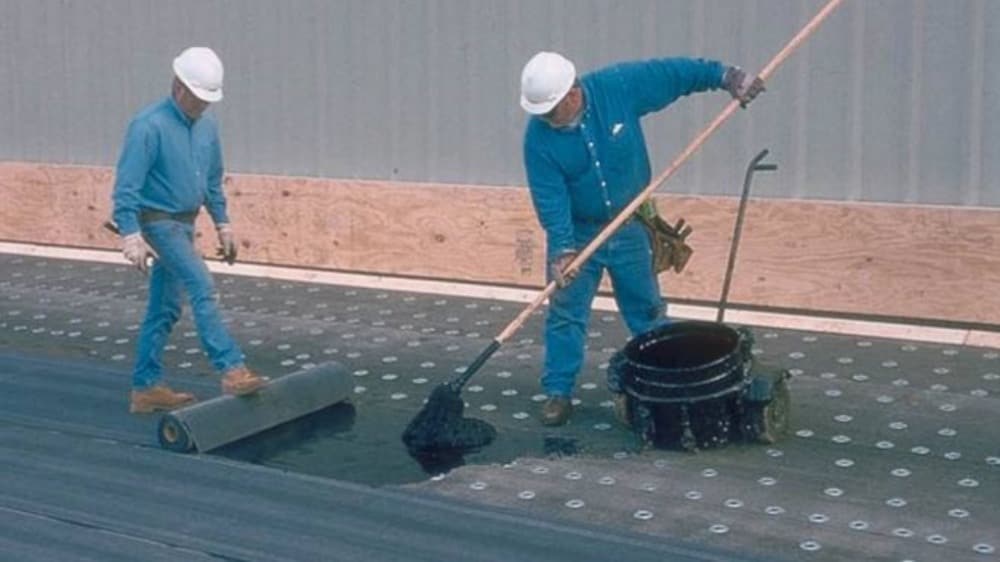
Hot asphalt
Types of SBS Roofing Membranes
Different types of SBS roofing membranes
No one product is appropriate for every use, which is why Siplast offers three families of SBS-modified bitumen systems. Our SBS solutions have varying combinations of thickness, carriers, and surfacing, with all meeting Siplast’s high performance standards.
Explore our SBS-modified bitumen systems Learn more
Enhancing the performance of SBS Roofing
Essential Accessories for SBS Roofing
There are many accessories that can be used with SBS-modified bitumen roofing systems. These accessories include base sheets, polyiso insulation boards, cover boards, protective walk pads, adhesives, primers, fasteners, coatings, and more.
Best Practices for Adhesives & Cements in SBS Roofing
Types of adhesives and cements used
Cold adhesives like Siplast's PA 311 or PA 828 are composed of bitumen, solvent, fibers, fillers and stabilizers. As the solvent evaporates from the adhesive, the remaining components bond to the modified bitumen surface of the membrane by a type of solvent weld. For situations in which solvent-based adhesives cannot be utilized, we offer a new class of cold adhesives with high solids content that provide options for low VOCs. Because of the low solvent content of our SFT Adhesive and Flashing Cement, there is virtually no odor to these adhesives, which allows for installation over occupied buildings. These materials not only act as an adhesive, but upon curing they add an additional elastomeric, polymer-modified, water-protective layer between the modified bitumen sheet materials and the substrate.
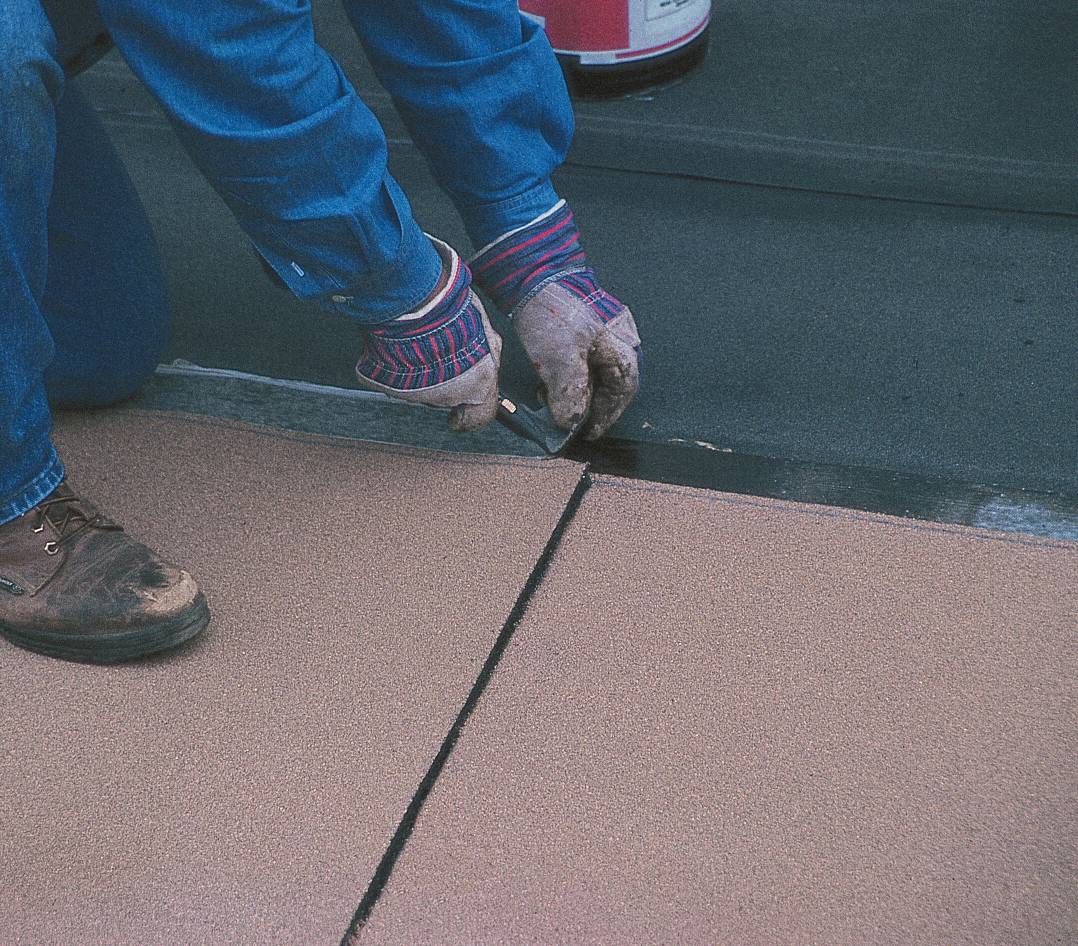

Proper application techniques for adhesives and cements
Frequently Asked Questions
What does SBS mean in roofing?
SBS stands for styrene-butadiene-styrene, a synthetic rubber that is used in modified bitumen roofing systems, which are popular for commercial and industrial buildings with flat or low-sloped roofs.
How long is the guarantee coverage for Siplast SBS roof systems?
Siplast SBS-Modified Bitumen Roof Systems are eligible for guarantee coverage terms of up to 30 years. Reference the Siplast Paradiene and Parafor Guarantee Guide here or contact Siplast Design Services via email at designservices@siplast.com or by phone at 855-861-6460 for additional information.
How is SBS roofing installed?
One of the advantages of SBS roofing is the variety of installation methods that be used. It can be cold applied, torch applied, hot asphalt applied, self-adhered, or mechanically attached.
What is the difference between SBS and BUR roofing?
SBS-modified bitumen roofing and built-up roofing (BUR) are both roofing systems, but have different compositions, installation methods, and performance expectations. For instance, SBS roofing is made of asphalt and synthetic rubber, while BUR is made of multiple layers of asphalt and ply sheets. Both systems perform will in inclement weather conditions, but SBS roofing typically has more flexibility than BUR.







